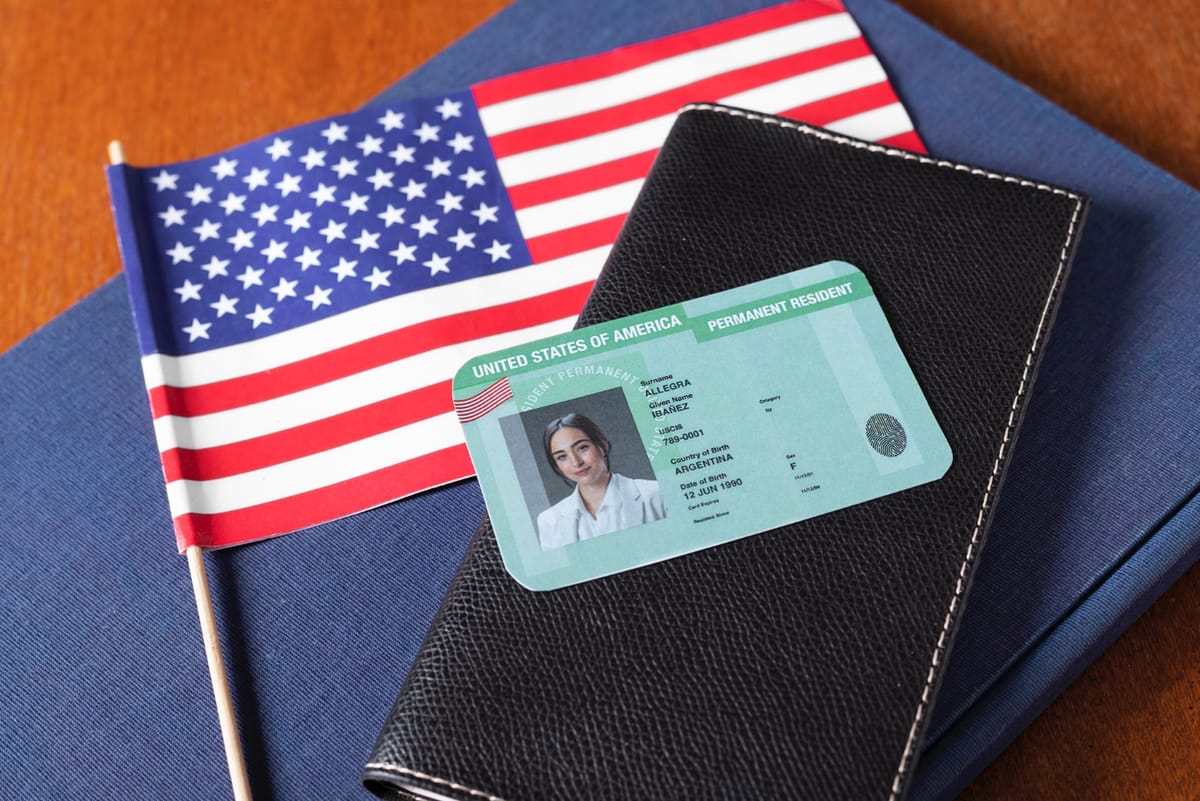Green Card Holders' Rights: What you need to know

The recent arrest of Mahmoud Khalil, a green card holder and former Columbia University student involved in pro-Palestinian protests, has sparked concerns over the rights of lawful permanent residents in the United States. Khalil, married to a U.S. citizen, was taken into custody by Immigration and Customs Enforcement (ICE) agents in New York on March 8, 2024, and is currently detained in Louisiana. While he has not been charged with a crime, the Trump administration argues that he can be deported on foreign policy grounds.
This case raises important questions about the rights and vulnerabilities of green card holders. Here’s what you need to know.
What Is a Green Card?
A Green Card, officially known as a Permanent Resident Card, grants non-citizens the right to live and work permanently in the United States. Eligibility for a green card can arise through family sponsorship, employment, refugee or asylum status, and other pathways.
Most green cards are valid for 10 years and require renewal. However, as immigration law expert David Leopold explains, "The card itself expires, but permanent residency does not—assuming the individual complies with the law. Failure to renew the card can have consequences, but it does not automatically terminate one’s lawful status."
Can a Green Card Be Revoked?
Yes, green card holders can lose their permanent resident status and face deportation under various circumstances. Some of the most common reasons include:
- Criminal Convictions: Crimes such as fraud, violent offenses, drug-related charges, and marriage fraud can lead to deportation proceedings.
- Immigration Fraud: Providing false information or engaging in fraud during the immigration process can lead to revocation.
- Extended Absence from the U.S.: Staying outside the country for more than a year without proper re-entry documentation can trigger scrutiny upon return.
- National Security Concerns: Green card holders can be deported if there are reasonable grounds to believe they are engaged in terrorist activities or pose a threat to national security.
Individuals facing deportation typically receive a notice to appear before an immigration judge. "Lawful permanent residents cannot be stripped of their status without due process," said Elora Mukherjee, director of Columbia Law School’s Immigrants’ Rights Clinic.
Green Card vs. U.S. Citizenship: Key Differences
While green card holders enjoy many legal protections under the U.S. Constitution, they do not have the full rights of U.S. citizens. Unlike citizens, permanent residents:
- Cannot vote in federal elections.
- Can face deportation if they violate immigration laws.
- May have restrictions when traveling internationally.
- Must maintain their residency status actively.
To gain full rights and protections, green card holders must go through the naturalization process to become U.S. citizens.
The Legal Debate Over Khalil’s Case
Khalil’s detention has raised legal and political questions regarding the use of immigration law in foreign policy matters. According to CBS News, the Trump administration is invoking a provision of the Immigration and Nationality Act (INA) that allows deportation of non-citizens if their presence is deemed to have "potentially serious adverse foreign policy consequences" for the U.S.
This particular provision is rarely used, and its application in Khalil’s case has drawn criticism. "One cannot simply be stripped of their residency," wrote Matthew Boaz, an assistant professor at the University of Kentucky’s J. David Rosenberg College of Law, in a Lawfare article.
Where Is Khalil Now?
Following his arrest in New York, Khalil was initially detained in New Jersey before being transferred to a detention facility in Jena, Louisiana. His legal team is contesting the transfer, calling it "blatantly improper." According to legal analyst Robin Nunn, Louisiana houses several ICE detention centers, making it common for detainees to be relocated there due to available space.
Final Thoughts
The case of Mahmoud Khalil highlights the complexities of immigration law and the rights of green card holders in the U.S. While permanent residents have many legal protections, they remain vulnerable to deportation under certain circumstances. This case underscores the importance of staying informed about immigration policies and seeking legal counsel when needed.
For individuals facing immigration issues, consulting an experienced attorney is crucial. If you need assistance with your immigration status, VisaLex is here to help.
By VisaLex, based on a report from CBS News
